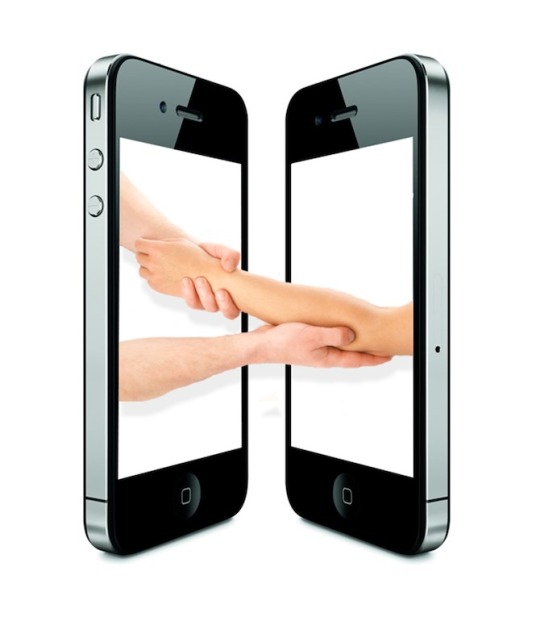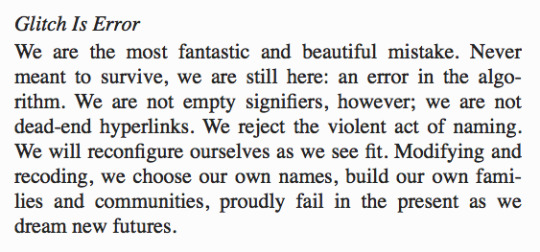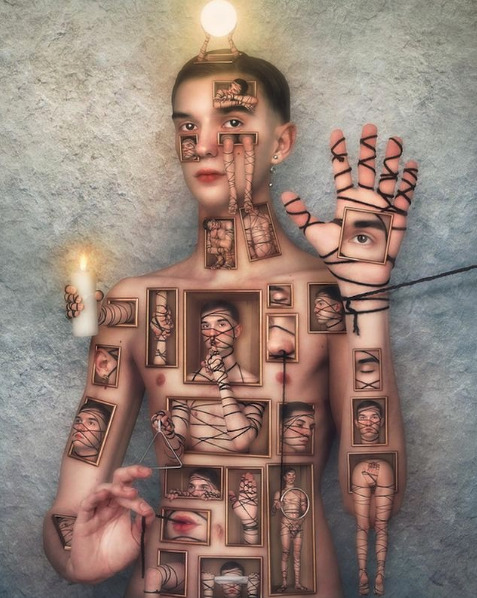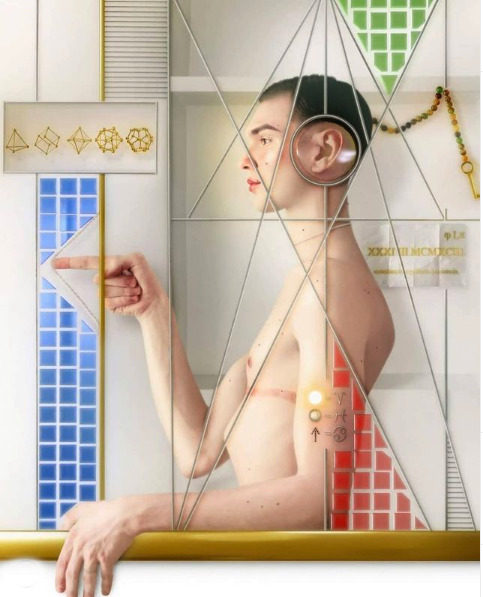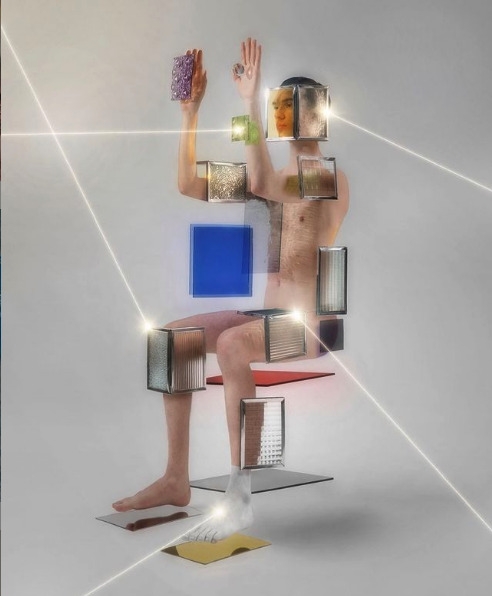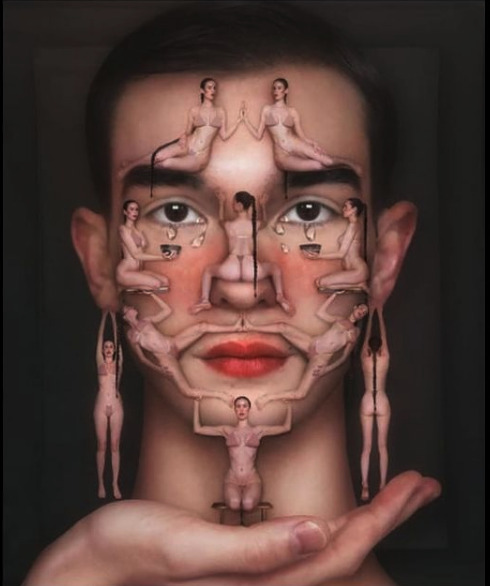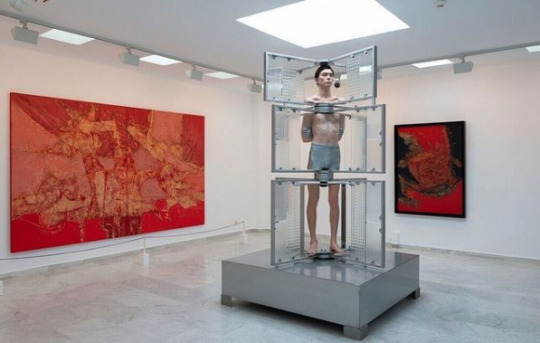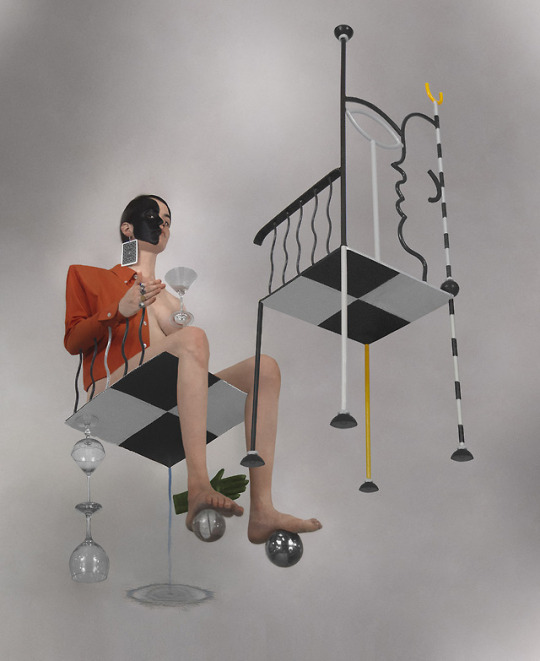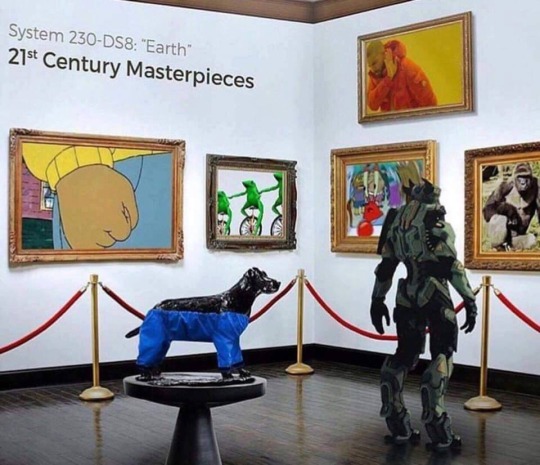Text
The Sociology of Digital Bodies
”Glitched bodies pose a very real threat to social order: encrypted and unreadable within a strictly gendered worldview, they resist normative programming. Illegible to the mainstream, the encrypted glitch seizes upon the creation of a self that, depending on the audience, can only be hypervisible and simultaneously unreadable, undetectable.”- Legacy Russell, Glitch Feminism
The notion of the “self” in an online landscape is difficult terrain to navigate, spanning from documentation of one’s entire life to complete anonymity. In order to begin to comprehend the spectrum of digital identities, we have to start with the idea of the body. Bodies are profoundly social, acting as sites in which we embody social norms, structures, and constructions. Because of this, the body is a battleground for politicization, where the physical traits that are exhibited either disrupt or conform to the social environment in which the body operates; Meaning, a body cannot be separated from its race or gender because social constructs are formed at the body. However, if the physical body is not present, how can these collectively held beliefs continue to permeate social space? What does it mean to identify the self without a physically present, and immediately perceivable, body?
When creating a social media profile, you are usually asked to identify yourself in some form or another. Depending on which platform you are signing up for, the registration process asks for your name or username, gender, birthday, a biography, and a profile picture, amongst other permissions such as access to your contacts or location. Here, the user is given the option to choose how they want to be identified online; to disclose as much or as little information about themselves that they deem appropriate, or create an entirely fabricated profile. Typically, people create profiles that reflect their physical body, a mirror of their true self, and include details about themselves that correspond to their traits that can be perceived in real life. On an anonymous profile, a person’s identifiable traits such as race or gender might not be visible, but because there is a human being running the account that has been nurtured by the social world, their authentic self may come through in what ever ways they allow it to. Nonetheless, because the body can be hidden behind a screen, the necessity to be yourself falls to the wayside.
On one side of the identity masking spectrum, we have the “catfish” phenomenon, in which an online user pretends to be another person by copying an existing profile in order to gain popularity, relationship status, and manipulate others into believing they are who they claim to be. On the other side, there is complete anonymity, in which a user creates a pseudonym and opts out of uploading any photographs of themselves, refusing to reveal their true identity. Anonymity allows users to feel free in what they say online, good or bad, since their words are not connected to their true self, but it also allows the user to roleplay, exploring the ways that they present social constructions . By being anonymous, they are able to become a character among human beings, utilizing the internet as a an alternate reality rather than a parallel reality.
There is an incredible sense of power in the act of playing with identity on the internet. Unlike catfishing, roleplay has many benefits for those holding particular social positions, simply on the basis that the body is not present. Bodies that are stigmatized, such as disabled bodies, overweight bodies, transgender bodies, etc., suddenly become free of the judgement that may be placed on them in a physical space, now that they have entered a digital space. Shielded behind an avatar, these bodies escape the scrutiny of the normative eye, able to perform as they please. To enter into a viscerally public platform where you are not performing as “you” can aid in the exploration of the internal self, that of which permeates both digital and physical space.
This begs the question, if the internet is a funhouse mirror of our physical society where one is able to expand upon what it means to be themselves through performance, what happens when you perform as yourself? Is it even possible to do justice to the presence you hold in reality when your curate your digital reflection? Does the internet allow for safe spaces that build community based on identity politics, or is the vulnerability of being yourself putting yourself at risk of online harassment?
The internet has the potential to act as an alternative reality for those who are marginalized by the system that was not built for them. Legacy Russell uses the term “glitched bodies” in reference to bodies that sit outside of the societal binary that keep the system from running smoothly. Meaning, systemically marginalized identities that disrupt social norms are further stigmatized because they don’t appeal to the narrative that society tends to push. The insecurity that comes with being a glitched body online can lead to the cases of roleplay and anonymity mentioned prior, encrypting the self as a form of protection. In creating an authentic profile, one opens themselves up to the risk of being judged by the public. This perpetuates the cycle of more people hiding themselves, whether it be to protect themselves from judgement, or to openly judge others. However, by being your true, glitched, self online, you are engaging in an act of protest against systemic oppression; you unlock the ability to find other glitched bodies that are similar to yours in the depths of the digital realm, furthering the potential for utopic space on the internet.
Although the internet often mirrors the world around us, the internet creates space for glitched bodies to feel empowered, whether their body is made visible or not. Having the option to experiment and explore, to connect and relate through digital performance, becomes an opportunity for self-discovery: a bittersweet internal reflection on our social conditioning. The internet makes us invisible and hypervisible at the same time, constantly creating and destroying the “self” as we power down the real world and log into a system that doesn’t crash when we glitch.
7 notes
·
View notes
Photo

Legacy Russell’s book is on sale at Verso Books if you want to do a little to support WOC theorists
18 notes
·
View notes
Photo

they did surgery on a g̈́̊ͭ͋̅̚҉̡̲̙ľ̜͚̤͇͖͈̍̀ḯ̦͖̠͍͓̓͗͒ͤ̔ͫt̴͈͎͉̩͙̆̑ͦ̕c̃ͣ͏̖̩̹h̩̩͍͍̪̄̐́͋͐̎̀͑͝͠
259 notes
·
View notes
Text
The Internet Is A Cave
In order to explain the hypercontemporary nature of the web, we must look to antiquity, delving into the symbolism of a physical space to better understand the reality of digital space, highlighting the internet as a feigned version of reality as well as a transitory heterotopia. The symbolism of the cave allows for both literal and metaphorical comparisons to other spaces, begging the question, could the internet be a cave?
Plato’s allegory of the cave describes a hypothetical scenario in which a group of prisoners live their lives chained to the wall of a cave, watching shadows pass over a blank wall in front of them. The shadows are caused by people carrying objects or puppets in front of a fire behind the prisoners. The prisoners are unable to move or look at each other, remaining completely unaware of the fire, of where sounds are coming from, or life outside of the cave. Plato proposes that if one prisoner left the cave, the sun would blind him until his eyes adjusted. He would conclude that life outside the cave was better than life inside the cave, and attempt to tell the other prisoners what awaits beyond the walls. However, when he returns, he would be blinded by the darkness the same way he was blinded by the light, which would scare the other prisoners into believing that the alternative reality outside of the cave would harm them, causing them to remain inside the cave forever. Due to the prisoners condition, the shadows on the wall become their entire idea of reality, their preferred reality, which presents a philosophical quarrel about the nature of perception and what we perceive as ultimate truth based on lived experience.
If the internet is the cave, our devices become the cave wall, with projections of reality floating by as we browse through page upon page. We watch videos and read articles that communicate what’s happening outside of the cave, in the real world, to the point where we believe everything we see on the digital cave wall is ultimately true. Unlike the Plato’s prisoners condition, we have the autonomy to escape, but we have become so comfortable in the cave that anything that lies beyond becomes obsolete. Not only do we have the choice to escape the cave, we have a choice in which flickering shadows we consume, what’s most pleasing to us; therefore, the digital cave-dweller can select their own version of reality through a series of clicks. Those who escape the internet cave come back to report current news to those who fall prisoner to the allure of the digital wall, and ever so often, the reports are so grim and violent that the cave-dwellers decide to leave less and less. Why would one want to face blindingly harsh reality when the cave wall allows for freedom in ignorance? It is so much easier to remain passive, to accept the fate of the cave, than travel outside and anything other than the reality you’ve chosen to consume.
In addition to theoretical caves, the significance of historical caves can also serve as an allegory for the internet. For years, archaeologists determined that the artifacts and deposits found in Paleolithic caves were the result of domestic behavior or storage. It was not until recently that proof surfaced that these caves were not dwellings at all, but rather, ritual spaces.
The implications of habitable space and liminal space is vastly different; transitory spaces lack the character and detail of a space that is meant to be lived in. If caves appear to be domestic spaces, but are actually intended for brief encounters, than how does the internet fit into this extended metaphor? Even though the internet is not a physical space, the way that users scroll through different pages to reach their destination, never staying in one spot, directly reflects the nature of a heterotopia. No matter how alluring the digital cave appears to be, it’s not somewhere that you can remain forever. It is transitory and temporary, somewhere to pass through rather than live in. In fact, dangerous to live in if one became fully consumed and never left the cave like Plato’s prisoners. The internet is just shadows on the wall, and one has to tread with caution as to not be fooled that this space is reality, or worse, home.
#internet#Internet art#internet history#plato's cave#foucault#post internet art#post internet#net art#vaporwave
2 notes
·
View notes
Photo
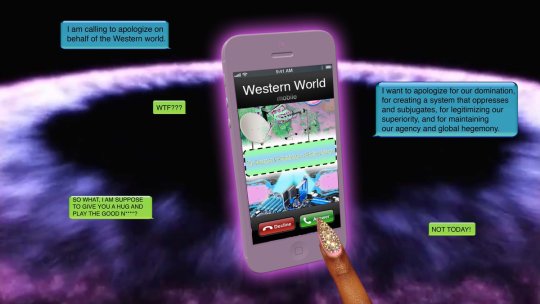
Tabita Rezaire, “Afro-Cyber Resistance,” video still, 18:26, 2014
2 notes
·
View notes

